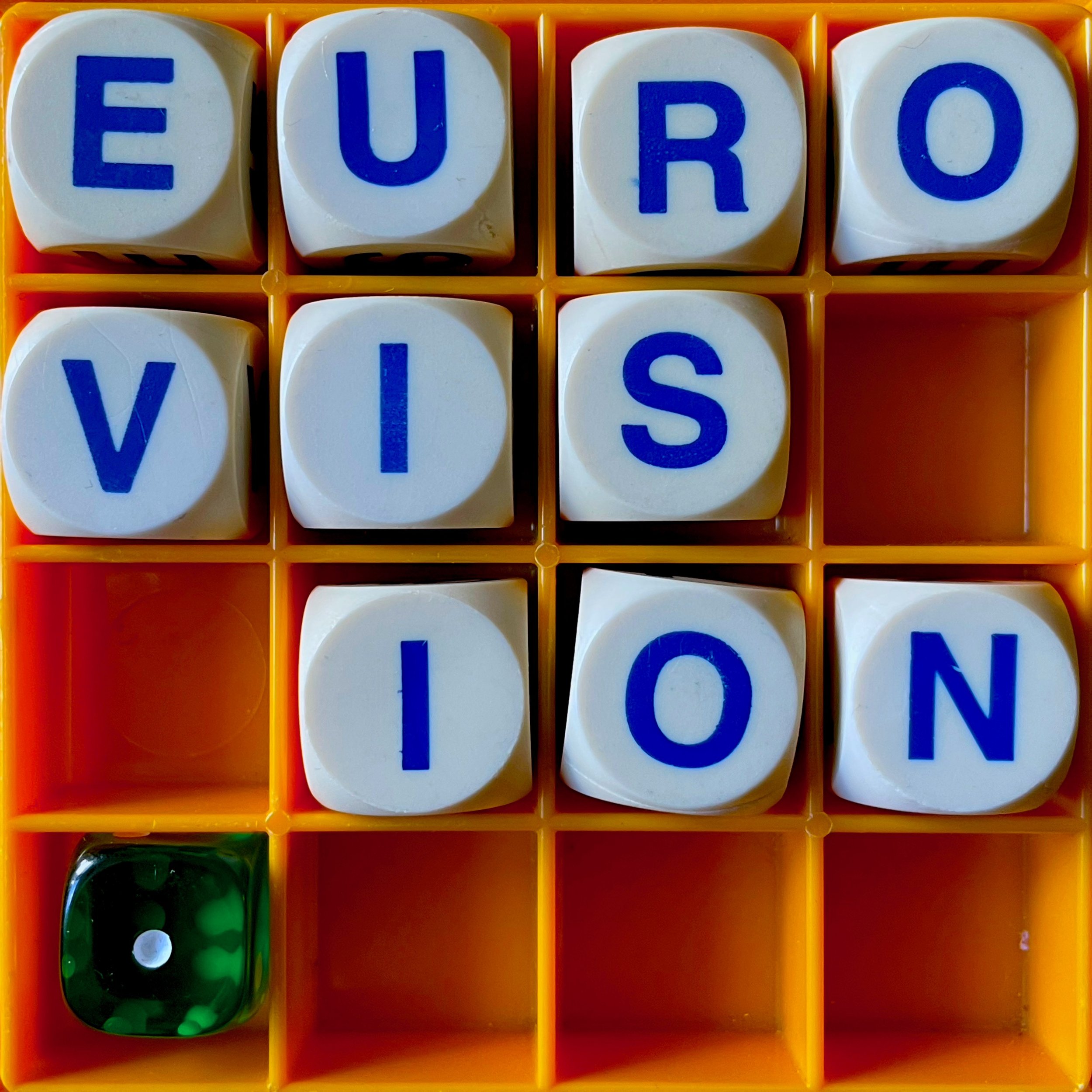BIBEK GURUNG: You grow up with the sense that if your first language, or one of your first languages, Singlish, actually a bad version of an already existing language, you kind of get this sense that “I'm just bad at language,” which is… language is a fundamental human skill. It's what separates us from the lemurs or whatever. And to just have this sense that you're bad at this very fundamental skill, I think, really does a number to your self esteem and your abilities to communicate in general. I still have a lot of - I don't know how to phrase it, maybe like cultural cringe - around Singlish. And when I meet someone from Singapore, we do sort of lapse into Singlish and communicate in that way, except if I'm with American friends and then I just feel so self conscious and I'm not able to do it. As a student of linguistics and someone who just knows about the sociolinguistic dynamics, I still find it really hard to shake.
Read moreAllusionist 174 Eurovision part 1 transcript
The Eurovision Song Contest has given us the international renown of Celine Dion, Måneskin, Dana International, Conchita Wurst and Riverdance; tear-off skirts, nul points, shiny shiny costumes, a band of babushke dancing around an onstage bread oven; not to mention fraught politics, within and between nations. And most importantly for our purposes: linguistic intrigue! So much linguistic intrigue.
Read moreAllusionist special: Podcast Podcast transcript
I’m here to talk about a word that a lot of people hate: podcast.
Read moreAllusionist 105. F'ood - transcript
NANCY FRIEDMAN: The 1920s were kind of a big era for inventive spellings, with V and K: Tasty Kakes with a K, that was the 1920s; Cheez It - C H E E Z I T, 1921 it was. They're cheesy crackers. And. Let's see. There's Cheez Whiz which is a little newer, 1952. These names have been around quite a while.
HZ: And is the idea with things like Cheez Its and Cheez Whiz that it's a cheese-esque product but it isn't technically cheese?
NANCY FRIEDMAN: It's got some dairy, usually some kind of whey product in it; but you're not meant to think that this is - first of all, it's not perishable the way cheese is. So yeah, they do have some family relationship to a cow; but it's not the pure product. We have to remember that there was a time when that was a nifty thing. It was modern and scientific.
HZ: Does anyone go for cheeese, spelled with a triple E, as a variant?
NANCY FRIEDMAN: I haven't seen any brands that are doing that. But now I will look for them.
HZ: You can have that on me.
NANCY FRIEDMAN: Yeah. That would be very internetty, to go for three or four vowels.
Allusionist 100. The Hundredth - transcript
Today there’ll be a celebratory parade of language-related facts that you’ve learned from the Allusionist and I’ve learned from making the Allusionist, so some old facts, some new facts - well, the new facts aren’t recently invented facts, they are established facts, just making their Allusionist debut.
Read moreAllusionist 11: Brunchtime - transcript
Motel. Email. Chocoholic. Labradoodle. Fanzine. Tanzania. Jazzercise. Breathalyzer. Televangelist. Chillax. Smog. Bromance. Velcro. Brangelina. Chrismukkah. Podcast. Jorts.
Modern English is awash with portmanteau terms, words formed from two or more words spliced together. The word ‘Portmanteau’, meaning a piece of luggage, is itself a portmanteau word from the 16th century, uniting the French words ‘porter’, meaning ‘to carry’, and ‘manteau’, meaning cloak. But credit for the Frankenword sense of 'portmanteau' goes to Lewis Carroll, in Alice Through The Looking Glass. Alice asks Humpty Dumpty to help her make sense of the Jabberwocky poem, full of portmanteaus like slithy, mimsy, galumph and chortle. “You see it's like a portmanteau,” says Humpty Dumpty, “there are two meanings packed up into one word.”
Today, I want to unpack one particular portmanteau, and that portmanteau is 'brunch'.
Read more





